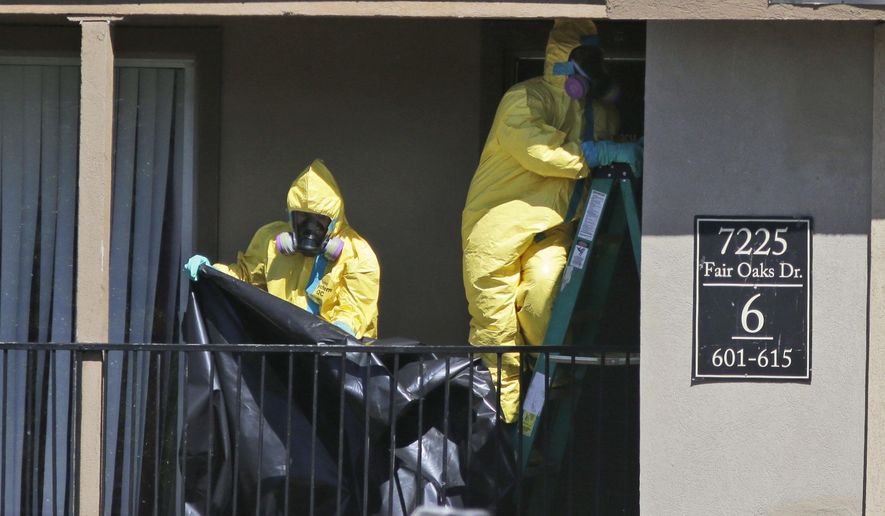DALLAS — The lone U.S. Ebola patient is in critical condition, the Dallas hospital that has been treating him reported Saturday.
Candace White, a spokeswoman for Texas Health Resources, which operates Texas Health Presbyterian Hospital Dallas where Thomas Eric Duncan is being treated, issued a six-word news release saying, “Mr. Duncan is in critical condition.”
She provided no further details about his condition and didn’t immediately respond to emails and phone calls. The hospital previously said Duncan was being kept in isolation and that his condition was serious but stable.
Duncan traveled from disease-ravaged Liberia to Dallas last month before he began showing symptoms of the disease. He was treated and released from the hospital before returning two days later in an ambulance and being diagnosed with Ebola.
Health officials said Saturday that they are currently monitoring about 50 people for signs of the deadly disease who may have had contact with Duncan, including nine who are believed to be at a higher risk. Thus far none have shown symptoms. Among those being monitored are people who rode in the ambulance that transported Duncan back to the hospital before his diagnosis, said Dr. Tom Frieden, the director of the Centers for Disease Control and Prevention.
On Friday, a hazardous-materials crew decontaminated the Dallas apartment where Duncan was staying when he got sick during his visit. The family who lived there was moved to a private home in a gated community, where they are being carefully monitored. The city had been having trouble finding a place that would take in Louise Troh, originally from Liberia, her 13-year-old son and two nephews.
“No one wants this family,” said Sana Syed, a Dallas city spokeswoman.
The decontamination team collected bed sheets, towels and a mattress used by Duncan before he was hospitalized, as well as a suitcase and other personal items of his, officials said. The materials were sealed in industrial barrels that were to be stored in trucks until they can be hauled away for permanent disposal.
The first Ebola diagnosis in the U.S. has raised concerns about whether the disease that has killed 3,400 people in West Africa could spread in the U.S. Federal health officials say they are confident they can keep it in check.
The virus that causes Ebola is not airborne and can only be spread through direct contact with the bodily fluids - blood, sweat, vomit, feces, urine, saliva or semen - of an infected person who is showing symptoms.
Duncan arrived in Dallas on Sept. 20 and fell ill a few days later. After an initial visit to the emergency room at Texas Health Presbyterian Hospital, he was sent home, even though he told a nurse he had been in disease-ravaged West Africa. He returned to the hospital two days later, last Sunday, and has been kept in isolation ever since.
The hospital issued a news release late Friday saying that the doctor who initially treated and released did have access to Duncan’s travel history, after all. It said Thursday that a flaw in the electronic health records systems led to separate physician and nursing workflows, and that Duncan’s travel history hadn’t been available to that doctor.




Please read our comment policy before commenting.